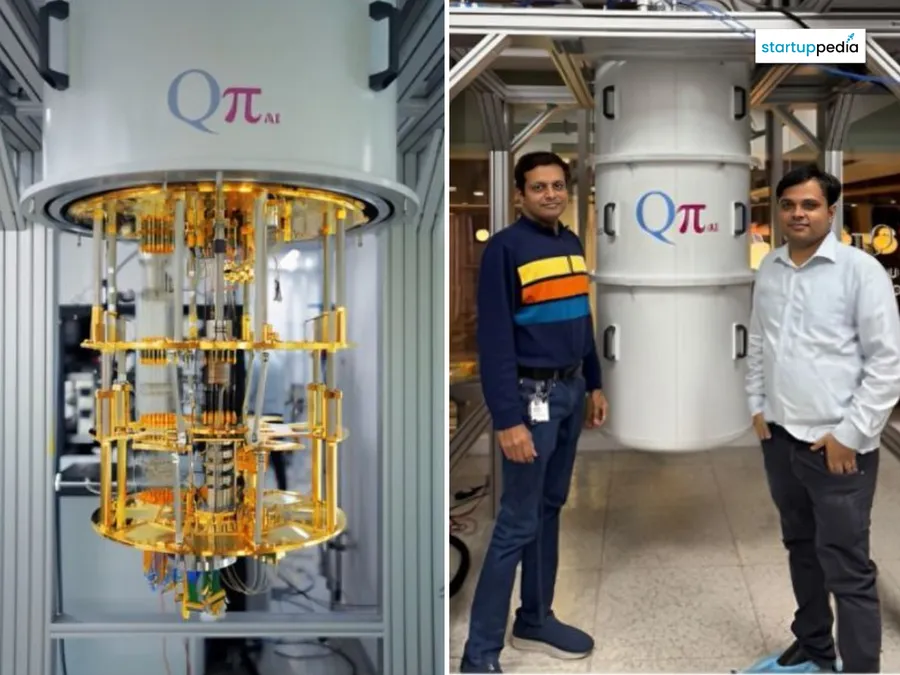Copyright startuppedia

"In a big boost for India"s deep-tech sector, Bengaluru-based startup QpiAI has launched Kaveri, a 64-qubit superconducting quantum processor. Advertisment The company says it is the most advanced quantum chip ever made in India. Also read: “Typing "I love you" never feels the same as saying it" - Meet Hyderabad founder who launches a voice-first app for real human connections (startuppedia.in) QpiAI Introduces Kaveri – India"s 64-Qubit Quantum Chip QpiAI announced the launch of Kaveri during a technology event in Delhi. Built using superconducting circuits, it is designed to handle complex calculations that regular computers can"t process efficiently, helping industries, researchers, and government projects across areas like data security and artificial intelligence. In a post on the company"s official X (formerly Twitter) account, QpiAI shared: “Today"s launch of the Kaveri 64-Qubit quantum chip is not just an achievement for QpiAI, but a proud moment for India and its scientific community. Kaveri 64 shows what can be done when Indian innovation meets strong teamwork.” According to the company, Kaveri is built with a scalable design that allows future upgrades to higher qubit counts. The processor will be made available to industries, research labs, and universities once it completes testing and validation. Also read: This mechanical engineer quit high-paying job to rescue bees - Now clocks Rs. 65 Lakh annual turnover (startuppedia.in) About QpiAI, Its Founder, and Its Work in Quantum Technology Founded in 2019 by Nagendra Nagaraja, QpiAI is a Bengaluru-based deep-tech company focused on artificial intelligence and quantum computing. Nagaraja, who serves as the chairman and CEO, has over two decades of experience in advanced computing. Before developing Kaveri, QpiAI built a 25-qubit quantum computer called Indus. That project helped the team gain the technical experience needed to scale to 64 qubits. In 2025, QpiAI raised $32 million in a funding round led by Avataar Ventures and the National Quantum Mission (NQM). The funds are being used to expand its manufacturing capacity, hire more engineers, and develop new quantum systems. The company says Kaveri uses a “flip-chip integrated” design to connect qubits with higher efficiency and lower error rates. This design supports better stability, which is key to solving real-world problems in logistics, medicine, and materials research. Also read: Gurugram Engineer Starts A Cybersecurity Co. From Home; His Startup Now Serves 800+ Clients Globally & Generated ₹25 Cr+ Rev During Last FY (startuppedia.in) What"s Next for QpiAI and India"s Quantum Efforts QpiAI plans to release Kaveri commercially by the third quarter of 2026. It is already developing its next chip, a 128-qubit processor called Ganges, and has set a goal of reaching 1,000 qubits by 2030. India"s National Quantum Mission continues to support companies like QpiAI as part of its plan to make India a global leader in quantum technology. The mission encourages partnerships between startups, universities, and government labs to speed up progress in the field. Investors have expressed confidence in QpiAI"s vision. One of the lead investors said: “Quantum computing can solve some of the hardest problems we face today. India has a great chance to lead in this space, and QpiAI has shown both technical strength and a clear business vision.” With Kaveri, India moves a step closer to joining the world"s top countries in quantum computing. If successful, the project could bring breakthroughs in cybersecurity, healthcare, and industrial research — fields that stand to benefit most from faster and smarter computing. Also read: Meet these two 22-YO engineers who built India"s first AI-powered Robot that burns weeds with lasers instead of pesticides (startuppedia.in)"



